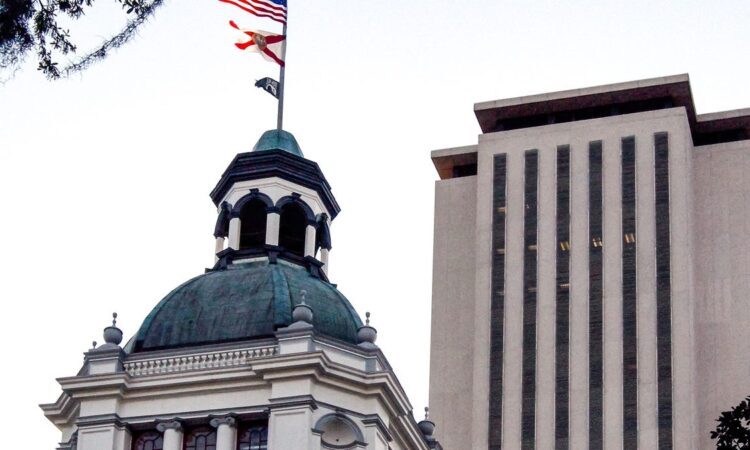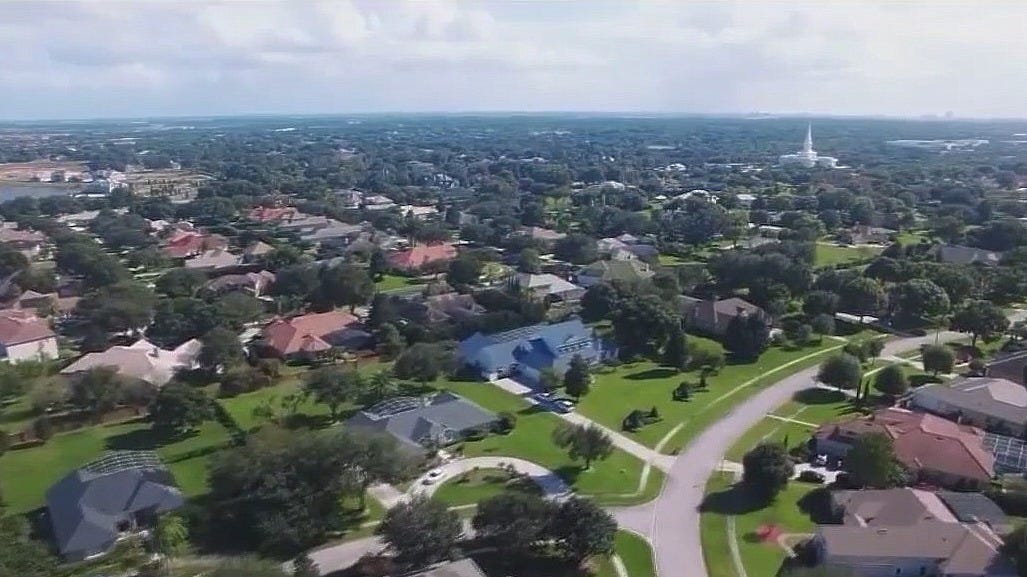

Study eyed for Florida property tax changes
Expect an economic impact study as a first step as discussions ramp up about the future of property taxes in Florida.
Fox – 35 Orlando
The day after Halloween, Florida property tax bills go out to mailboxes. Boo!
The bottom-line amount on the bill will not be as much as the TRIM notice warned about back in August — local governments almost always back off from the TRIM notice maximums — but people do react viscerally at property tax time. As anyone who regularly listens to local government public comment sessions can tell you.
But because Florida does not have an income tax — voters put a state income tax prohibition into our state constitution in 1924 — government is funded with a mix of property taxes, sales taxes and a sprinkling of fees and levies to fill in the gaps. Much of day-to-day government functioning depends on locally imposed property taxes.
Where do Florida property taxes fall nationally?
And yet, Florida ranks 24th in sales taxes (combined local and state) and 30th in property taxes, according to the Tax Foundation. In the middle among the states. Neither high nor low. It’s always amusing to hear newcomers from the nation’s highest property-tax states like New Jersey and Illinois show up at local government meetings to complain that local property taxes here are confiscatory. They are still fighting battles from back home.
My own taxes on a home that’s close to the median property value in Volusia have gone up by an average of $24 a year since 2020. Pretty modest. I wish I could say the same for my home insurance.
A bigger threat to home affordability in Florida is the cost of windstorm insurance. I pay Citizen’s Property Insurance Corporation more than $1,000 a year for windstorm insurance above what I pay for all local property taxes combined. This is not unusual among Florida homeowners.
Yet I’m not hearing so much lately from state politicians about the windstorm insurance situation. Instead, Gov. Ron DeSantis has called for the elimination of property taxes. He wants to put something on next year’s ballot that would push Florida toward that goal. Legislators are already at work to put something together in time.
Is local overspending why Florida property taxes seem so high?
The governor and Florida legislators claim that eliminating or cutting property taxes is necessary because local government overspending is responsible for the home affordability crunch. A legislature that regularly pushes new unfunded mandates on local governments is shocked to discover that those governments keep wanting more money to do their job. Nothing needs cutting more than somebody else’s budget.
Property taxes now pay a little under half of the cost of Florida public schools — 47% statewide, more in some counties, less in other counties. More like 48% in Volusia County and 59% in Flagler County. Without property taxes a lot of money would need to be found to make up the difference. Unless you believe that Florida schools are swimming in money.
Police and fire protection? They are also dependent on property taxes, and the city-by-city, county-by-county amounts vary dramatically. As they should. Places that handle big influxes of visitors — like Volusia and Orange counties — must spend a lot more on policing than places with large retirement communities like Sumter County.
And that’s the advantage of locally based taxation — local taxes mean local control. Local governments set funding levels in response to local demands and different local conditions. Shifting to sales tax funding would force cities to depend on whatever allowance is handed down to them by the distant powers in Tallahassee. It’s a formula for one-size-fits-all local funding.
How will Florida pay for services if property taxes are eliminated?
Eliminating property taxes would mean somehow making up the more than $55 billion in school, county, city and special district property taxes collected last year.
Maybe Florida could double the sales tax or simply raise the state sales tax to one of the highest in the nation and then dream up a creative and confusing menu of high user fees, charges and surcharges on top of that to make up some of the difference. (Not “taxes” mind you, just fees and user charges.)
Remember: If we still want to have police, schools, fire departments and whatnot — and most people do despite their seasonal anti-tax moments — we are talking about a big tax shift here rather than a big tax break.
And the big tax shifts now under discussion sound like a big power shift. One that takes away from local government.
Mark Lane is a News-Journal columnist. His email is mlanewrites@gmail.com.ca




